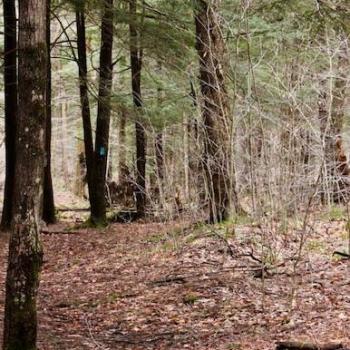Now Featured in the Patheos Book Club
The Gifts of Near-Death Experiences
You Don't Have to Die to Experience Your True Home
By Sheila Fabricant Linn, Dennis Linn, and Matthew Linn
We all long for a safe home. In the quintessential American sport of baseball, the goal is to arrive safe at home. Perhaps that is why so many of us love baseball so much.
Perhaps we were fortunate enough to have a safe home, and we are happily reminded of it every time someone welcomes us. Maybe we gratefully remember a time when we were tired, cold, or hungry, and someone took us in. Or, perhaps we feel alone and forsaken now, longing for that kind of welcome from someone…anyone…
During his near-death experience (NDE) after he drowned, Andy found himself in the next world and experienced being loved for himself. He was surrounded by billions and billions of lights, and he felt astounded that each light loved him personally and called him by name. They told him, "Welcome home, Andy. We love you." Andy responded, "I'm home. I'm home, at last, I'm home."
NDEs are experienced by four to fifteen percent of the population. They are consistent across cultures, and an experience frequently reported in accounts of NDEs is that of being welcomed home. NDEs remind us of the welcoming home we came from and to which we will return. One of the most common aftereffects in those who come back from such experiences is that they lose all fear of death. They know that when they "die" for good, they will again be welcomed into an infinitely safe and loving home, this time to stay. Such people want to extend the welcome and care they have experienced. They are likely to become more involved in social justice, enter helping professions, and leave religious environments that are based upon judgments of who is "saved" and who is not. They move toward forms of spirituality that are unconditionally welcoming of everyone.
NDEs have a special kind of power because they are accounts of immersion in the energy of infinite and unconditional love that changes people fundamentally and forever. All the rest of us, who have not had an NDE, can catch that energy, somewhat like, in the words of NDE researcher and author Kenneth Ring, "catching a benign virus." We can catch the benign virus by immersing ourselves in accounts of NDEs, by reading about them or listening to people who have had them. When we do, we are more likely to live here in this life with the same welcome and generosity of the next life.
How would that influence our attitude toward some of the most difficult issues of our time? For example, if we have once experienced infinite and unconditional love, could we ever go to war again? How might that affect our response to a political crisis such as ISIS?
Or, how would experiencing total welcome and generosity affect our attitudes toward homelessness or the worldwide refugee crisis? Why do images of ragged, poor people sleeping on the street or of cast out refugees break our hearts, such as the photo shared around the world of the little boy found dead on a beach after his family tried to escape from Syria?
And why do we feel so moved when refugees are welcomed with love and kindness, as Canadian Premier Justin Trudeau did for the 160 war-weary Syrians who arrived at the Toronto airport, the first of many that Canada plans to accept? Perhaps Trudeau's words, "Welcome to your new home….You are home," remind us of something we know from before we were born and, in some part of ourselves, have never forgotten.
Stories of NDEs bring that memory closer to the surface. Catching the benign virus by immersing ourselves in stories of NDEs can help us respond here with the same infinite love we knew before we came.
5/1/2016 4:00:00 AM




